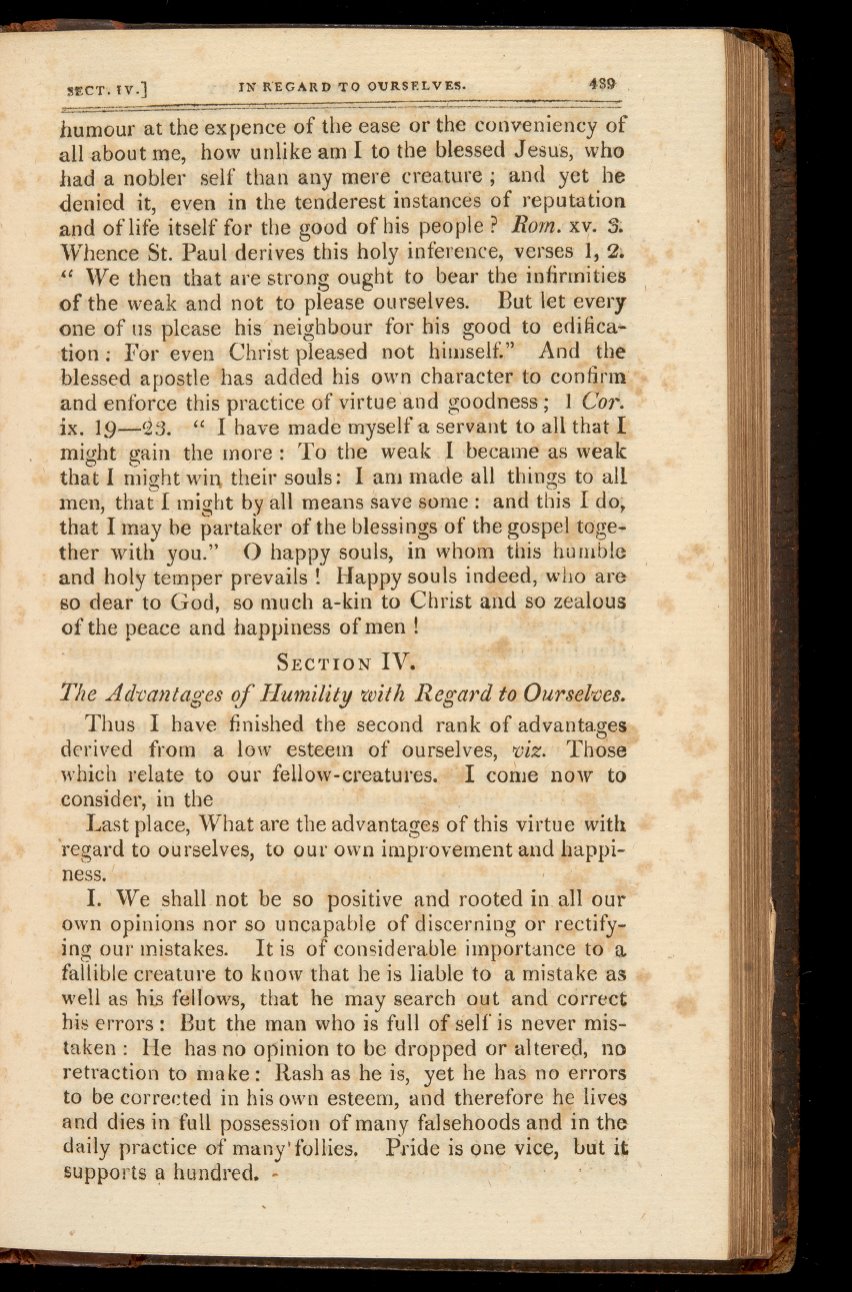

SECT. TV.]
IN
REGARD TO OURSELVES.
4$9
humour at
the
expence
of
the ease or the
conveniency
of
all
about
me,
how
unlike
am I to
the
blessed
Jesus,
who
had
a
nobler self than any mere
creature
;
and yet
he
denied
it,
even
in
the
tenderest
instances
of reputation
and
of
life
itself
for the good
of
his
people
?
Rom.
xv.
3.
Whence
St.
Paul
derives this
holy
inference, verses
1,
2:
"
We then
that
are strong ought
to
bear
the infirmities
of
the
weak
and
not
to please ourselves. But let every
one
of
us
please
his
neighbour for
his
good to edifica-
tion
:
For
even
Christ
pleased
not
himself." And the
blessed
apostle has added
his own
character
to confirm
and
enforce
this
practice of virtue
and goodness
;
I
Cor.
ix.
1g
-23.
"
I
have made myself
a
servant
to all
that
I
might gain the more
:
To
the
weak I became
as
weak
that
I
might
win,
their
souls:
I
am
made
all
things
to
all
men,
that
I might
by
all
means
save some
:
and
this
I
do;
that
I
may
be
partaker
of the
blessings
of
the
gospel toge-
ther
with
you."
O happy
souls, in whom
this humble
and holy
temper
prevails
!
Happy
souls indeed,
who
are
so
dear
to
God,
so
much a-kin
to
Christ and
so
zealous
of
the
peace and happiness
of
men
!
SECTION
IV.
The
Advantages
of
Humility
with
Regard
to
Ourselves.
Thus
I
have
finished
the
second
rank
of
advantages
derived
from a
low
esteem
of
ourselves,
viz.
Those
which
relate
to
our
fellow-
creatures.
I
come
now
to
consider,
in
the
Last
place,
What
are the advantages
of
this
virtue
with
regard
to
ourselves, to
our
own
improvement and happi-
ness.
I.
We
shall
not
be
so
positive
and rooted
in
all
our
own
opinions
nor
so
uncapable
of
discerning
or
rectify-
ing our
mistakes.
It
is
of
considerable importance to a
fallible
creature
to know
that
he
is
liable to
a
mistake
as
well as his fellows,
that
he may search
out and correct
his
errors
:
But the man
who
is
full
of
self
is
never
mis-
taken
:
He
has
no
opinion
to
be
dropped or
altered, no
retraction
to
make
:
Rash
as he
is,
yet
he has no
errors
to
be
corrected
in his own
esteem,
and
therefore
he lives
and dies
in full possession
of
many falsehoods
and
in
the
daily
practice of many'
follies.
Pride
is
one
vice,
but
it
supports
a
hundred.
-

















